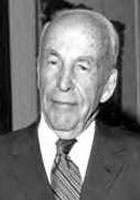The Young Dead Soldiers Do Not Speak Poem by Archibald MacLeish
The Young Dead Soldiers Do Not Speak
The young dead soldiers do not speak.
Nevertheless, they are heard in the still houses:
who has not heard them?
They have a silence that speaks for them at night
and when the clock counts.
They say: We were young. We have died.
Remember us.
They say: We have done what we could
but until it is finished it is not done.
They say: We have given our lives but until it is finished
no one can know what our lives gave.
They say: Our deaths are not ours: they are yours,
they will mean what you make them.
They say: Whether our lives and our deaths were for
peace and a new hope or for nothing we cannot say,
it is you who must say this.
We leave you our deaths. Give them their meaning.
We were young, they say. We have died; remember us.
its amazing poetry it fills me with what every word sed and it gives me stranth after my weak haert reads ur words
...We leave you our deaths. Give them their meaning. We were young, they say. We have died; remember us... Really WONDERFUL poem.
I wonder if anybody can tell me when this poem is dated. I came to this poem via another poem, by Chairil Anwar who obviously based it strongely on the Macleish poem. The title is 'Krawang-Bekasi' which refers most probably to a dramatic confrontation with British troops in the aftermath of WW2, when Indonesia declared itself free from the Netherlands and the British were filling in the power vacuum. I'm a composer and made music to the Chairil Anwar poem. I'm just about to commit it to CD and I was looking for an english translation of the poem (which is in Indonesian language) . In doing so, I stumbled on the Macleish poem. I'm not sure yet what to do now. Does anyone know who holds the copyrights of the Macleish poem? I guess another option is to do a rewrite of both versions into a new version and adapt it in the process for musical and more dramatical use. yrs, Renadi Santoso e-mail: renadi@zonnet.nl Amsterdam, the Netherlands
Poem was written in 1941 as the result of a funeral he witnessed at Arlington National Cemetery. At the time he was the Librarian of Congress. Before that he was the Poet Laureate. My source is an interview I am watching with Tom Brokaw and Tom Daschle (Daschle Dialogues on SD Public Television) .
This poem has not been translated into any other language yet.
I would like to translate this poem
MacLeish speaks for the young, dead soldiers, probably in World War II. What is the meaning of the young men's dying? The slain men do not know. It is for the living to give meaning to their deaths.
This was World I